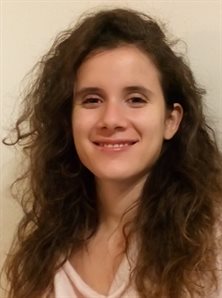PhD Philosopher makes Top 10
The Universitas 21 & PwC Innovation Challenge is an annual international competition open to postgraduates at all U21 institutions. PricewaterhouseCoopers set a current workplace challenge and participants record a 3 minute video pitching their solution.

This year the challenge focussed on how to prepare for an environmentally-sensitive economy and University of Birmingham PhD Philosopher Eugenia Lancellotta did fantastically well, getting into the top 10. There were 44 entries from postgraduates at 17 universities across the world. Eugenia’s video was viewed and judged by several high level staff both within PwC and their client companies, and she was awarded runner-up, winning careers training and mentoring from PwC.
“It felt great and completely unexpected to be in the Top 10, especially because I realised I was one of the few students of Humanities there! I felt really proud of representing the category and of doing it for the University of Birmingham.”
There are many benefits to taking part in the competition, particularly professional development and enhancing employability skills.
“I decided to take part in the challenge well, because I just love challenges and the whole idea of getting out of one's comfort zone to develop new skills. This challenge confirmed something which I already knew, at least in theory: that a holistic approach to problems is what allows you to solve them, even when these problems are quite removed from your day-to-day reality. As a philosopher, I have never dealt with the economic and social issues related to climate change and the green economy. However, what philosophy taught me is that you don't always need to have technical knowledge to successfully engage with a problem. What counts even more than that is being able to think critically about problems, engaging both one's creativity and rationality. The PwC challenge helped me see that this idea of mine was not merely "a philosopher's daydream" but that it could be successfully applied to real-world problems.
I really enjoyed the creative thinking part involved in the challenge: finding new ideas to answer the issues posited by the challenge was fun and intellectually stimulating. The most difficult part for me was the recording of the pitch: I would have never imagined that speaking for three minutes in front of a camera would prove to be so challenging. Trying to be clear, persuasive and comprehensive at the same time required more than one shot before the video was ready - and still, I was not completely satisfied with the final result. Each time you stumble over a word or forget what you have to say, you lose time and look much less convincing on the camera, so you have to do everything again from the beginning. The thing which got me through the pitch recording was only one: trying, failing and trying again. Practice really does make perfection. By the tenth time or so I shot the video, I had learnt the speech by heart and had gotten much more confident in front of the camera. At the end, I can say I was quite satisfied with the final product, even if not completely: I know I could have done even better but unfortunately it would have required much more time than I really had.”
You can watch Eugenia’s video, and the winners and other runner-up videos on the U21 website.